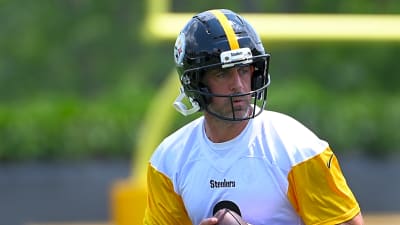
College athletics has been ushered into a never-before-seen era, and the Utah Utes are "all-in" on sharing as much revenue as they can with their student-athletes.
Final approval of the landmark House v. NCAA settlement that came Friday from U.S. District Court Judge Claudia Wilken has opened up a new avenue for schools to directly pay their players moving forward. Starting July 1, institutions can begin sharing up to $20.5 million per academic year with their student-athletes as part of the multi-billion-dollar agreement that'll also see thousands of former players receive $2.8 billion in back pay and damages from the NCAA and its power conferences over the next decade. These new payments will be made in addition to scholarships and other benefits student-athletes already receive.
Wilken's long-awaited decision to cut down the NCAA's amateurism model comes nearly three years after the Utah athletic department organized its Elevate U program to equip student-athletes with the skills needed to capitalize on their NIL value. Utah has been able to increase its investment in its student-athletes through this collective, along with help from the Crimson Collective and the Who Rocks the House Collective.
In a news release from the school's athletic department, Utah Athletics Director Mark Harlan lays out what the future will hold for the Utes as they enter a new world of college sports.
"We are all-in on investing up to the maximum allowable in revenue share, which is approximately $20.5 million for 2025-26, though we are finalizing our plans for how the revenue will be shared," Harlan said. "We also will add 23 new scholarships with a total value of $1.15 million, implement NIL contracts between the institution and student-athletes, and expand student-athlete endorsement opportunities with businesses and organizations."
"Through our existing Elevate U program, we have increased our investment with the addition of a Brand Strategy and Governance team dedicated to providing Utah student-athletes comprehensive support as they build their brand, enter into non-exclusive contracts for limited-use rights to their NIL, and profit," Harlan said.
Needless to say, Harlan has been preparing the Utes' athletic department for quite some time now. Patrick Nowlin, Utah's first chief revenue officer, has been tasked with leading the Utes’ revenue-generating initiatives since taking on his new position in October.
Utah has also cut its women's volleyball program while citing the sport's "stunted growth" as the reason. Though Harlan didn't directly mention the House settlement in his statement, it's reasonable to conclude that there were financial implications tied to the multi-billion-dollar arrangement. Other schools have already axed scholarships and defunded sports that don't create revenue in preparation for the House settlement's ripple effect across the country.
Utah student-athletes have earned more than $10 million collectively through charitable NIL activities and have dedicated nearly 7,500 hours to help several organizations achieve their missions and goals with the help of their third-party collectives.
"In recent years, our athletics programs have enjoyed significant and sustained success, and we are committed to building upon that as we compete for championships at both the conference and national level," Harlan said. "We have a renewed commitment to the culture of excellence that supports our student-athletes for success in the classroom, competition and community."
MORE UTAH NEWS & ANALYSIS
More must-reads:
- Wings' Paige Buckers sets new career-high in Caitlin Clark-esque performance
- Tom Thibodeau has classy gesture after Knicks firing
- The '1,000-yard receivers in the 2024-25 NFL season' quiz
Breaking News
Trending News
Customize Your Newsletter
 +
+
Get the latest news and rumors, customized to your favorite sports and teams. Emailed daily. Always free!







